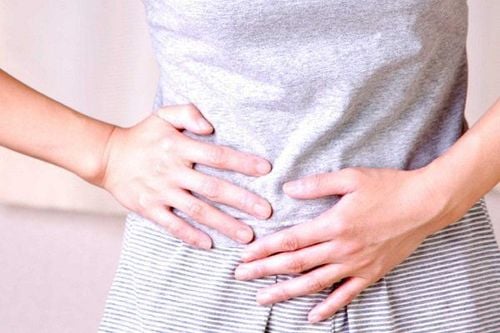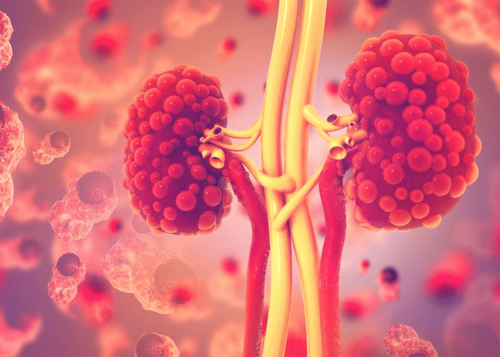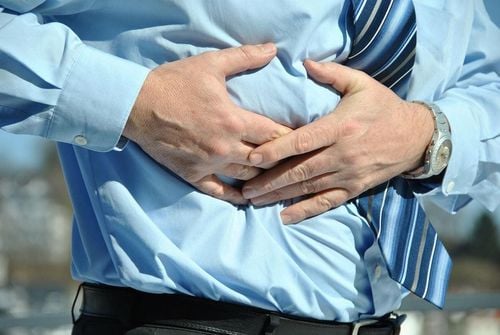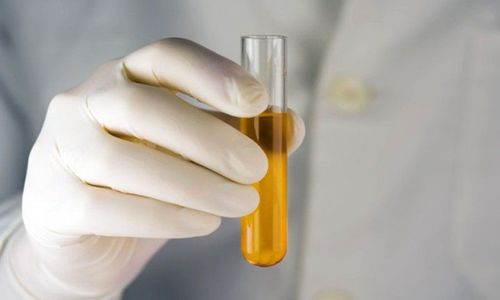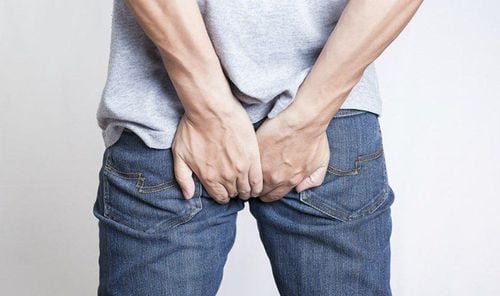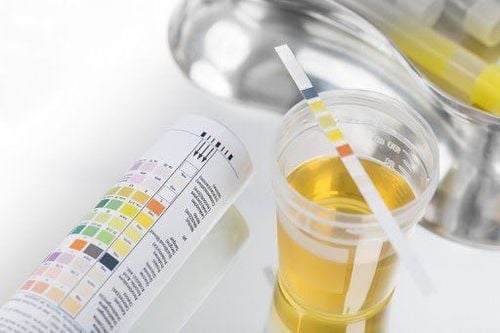This is an automatically translated article.
Article written by Doctor of Emergency Department - Vinmec Phu Quoc International General Hospital
Urine is the result of physiological activity of the kidney, kidney diseases will be manifested by changes in urine properties. Therefore, urinalysis has a very important position in the diagnosis of kidney and urinary diseases.
1. Normal urine
1.1. Physical properties
1.1.1. Urine volume
To assess urine output, one must collect 24-hour urine. The 24-hour urine collection method is as follows: exactly 6 am (can also be at any time of the day for the patient to urinate all the time and remove this urine sample, thereby collecting all the urine when urinating). Into a clean set with a lid, keep in a cool place. At exactly 6 a.m. the next morning (or at the time of the start of urine collection), have the patient urinate for the last time into the potty, and finish collecting the urine. Because urine for 24 hours can be changed to biochemical components by bacteria, so it needs to be preserved. Physical methods can be used such as keeping in a cabinet, creating a barrier with air with paraffin oil, toluene... or by chemical methods such as formol, HCl, H2SO4. 24-hour urine is used to measure the quantity or do other tests
Normal adults, drink water according to need, quantity of water Urine can range from 500 - 2000ml/24 hours, average 800 - 1800ml/24 hours, Daytime urine volume is usually more than nighttime urine volume.
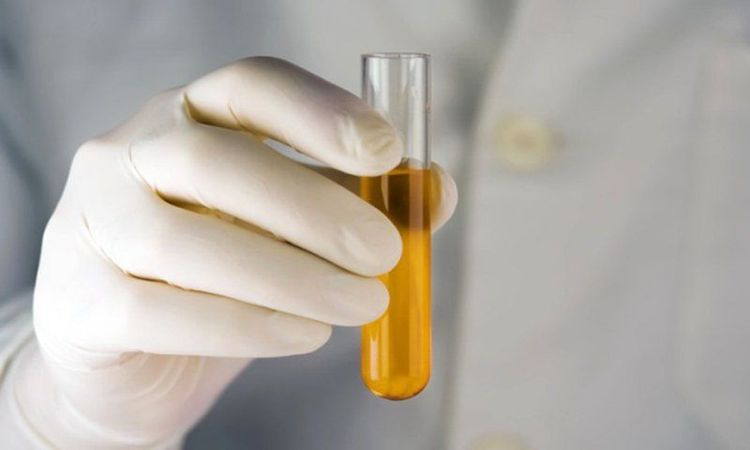
Xét nghiệm nước tiểu cần được thu thập 24 giờ
1.1.2 Density of urine
Urine density is defined as the ratio of the weight of one volume of urine to the weight of the same volume of distilled water, Urine density reflects the total weight of solutes present in the urine. Measure urine density with a urometer. The urine density measurement results are also influenced by the urine temperature at the time of measurement, so the measured results need to be adjusted according to the urine temperature. If the urine temperature is greater than the standard temperature of the urometer, add 0.001 every 3°C, if the urine temperature is lower than the standard temperature of the urometer every 3°C, subtract the result. go 0.001.
If the urine contains solutes with a large molecular weight, the urine density will increase, for example, urine has glucose, mannitol, intravenous contrast. Therefore, after X-ray with intravenous contrast injection, or after mannitol infusion, urine density should not be measured, because urine density in these cases does not reflect the ability to concentrate water properly. kidney urine.
Urine density in normal people, without kidney or urinary disease, ranges from 1,003 - 1,030, average 1,015 - 1,025, When drinking a lot of water or infusion of fluids, the urine density is low, but when drinking, it's not. If you have enough water, you sweat a lot, the proportion of urine is high. Nighttime urine density is usually higher than daytime urine density.

Trong nước tiểu có chất cản quang sẽ không được đo tỉ trọng
1.1.3. Urine osmolality
Urine osmolality is a measure of the number of solute constituents (ions, atoms, molecules, collectively referred to as "particles") present in a unit volume of urine. Urine osmolality is independent of the weight of urine solutes, so urine osmolality is a more accurate reflection of the kidney's ability to concentrate urine than urine density. For example, a NaCl molecule in urine dissociates into 2 ions, Na and C1, thus creating two particles, while a glucose molecule is just a molecule, just a “particle”. Thus, if the NaCl solution and the glucose solution contain the same number of molecules, the NaCl solution has twice the osmolarity of the glucose solution, but if the density is measured, the glucose solution will have a higher density. solution of NaCl is 3 times, because the molecular weight of glucose (180.1 Da) is higher than the molecular weight of NaCl (58.4 Da). The osmolality of a fluid is measured by the method of determining the drop in points of that fluid, the unit of osmolality used in biology is usually milliOsmol/kg H2O (mOsm/kg)
Osmolality Urine osmolality in normal people without urinary kidney disease, ranges from 50-1200 mOsm/kg H2O on average 400=800 mOsm/kg.
1.1.4. Urine pH
Urine pH ranges from 4,7-8, average 5.5-6.5
Total solutes/liter of urine: Is to estimate total solutes in 1 liter of urine by Long coefficient equal to how to multiply the last two numbers of the weight by 2.66.
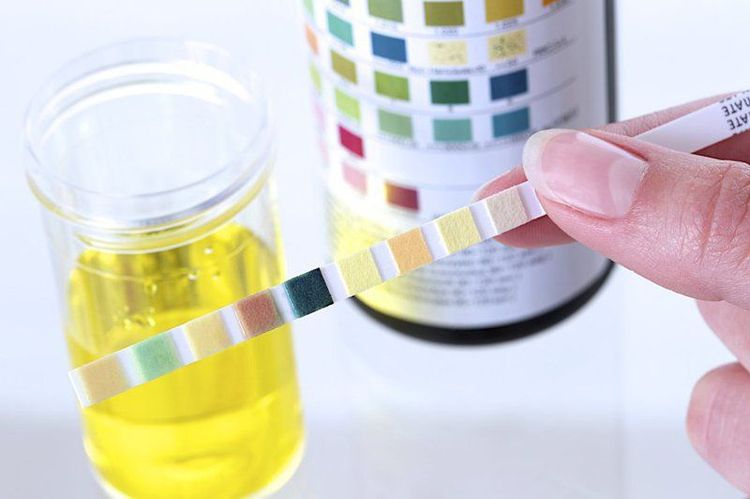
Chỉ số pH trong xét nghiệm nước tiểu
1.2. Inorganic components in urine (24 hour quantity)
+Sodium: 152.282 mmol (5 ± 5.5g) with a normal diet
+Chlorine: 240-296 mmol (9.5 ±0.98g)
+ Potassium: 27-35 mmol (1.2 ±0, 15g)
+ Calcium: 75 mmol (0.8g)
+ Lead: 43 ±20 ug
+ lod: 30-40 ug
+ Magnesium: 0.05-0.2g
+ Sulfur: 32-64 mmol ( 1.38 ± 0.34g).
+ Phosphate: 24-62 mmol (1.36 ±0.6)
1.3. Urine organic components (24 hour quantity):
+ Ammonia: 30-60 mmol (0.3-1g)
+ Urie Acid: 3-4.8 mmol (0.05-0.8g)
+ Pyruvie Acid: 0.14-0.19g
+ Acid ascorbie: 15-50 mg
+ Hypuric acid: 0.1-1g
+ Oxalic acid: 1.5-20 mg
+ Ketone bodies: 8-15 mg.
+ Creatinine: 8.8-12.6 mmol (60-150 mg)
+Indoxyl: 4-20 mg
+ Total nitrogen: 12-15g
+ Protein: <30 mg
+ Total Phenol: 0, 2-0,8g.
+ Urea: 365-431 mmol (22-26g)
+ Mucoprotein: 150-300 mg
+Urobilin: 0.2-0.6 mg/l
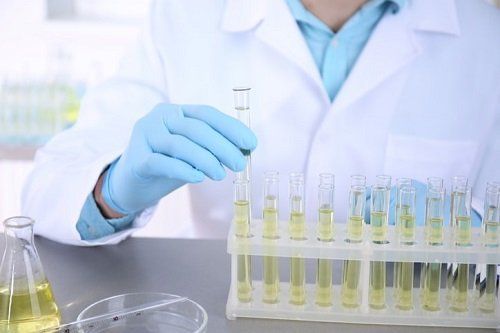
Các thành phần hữu cơ trong nước tiểu
1.4. Enzymes and hormones:
+ Amilase: <1310 IU (16-32 units W)
+Lipase: 0.1-0.75 units C
+Lysozyme: 2ug
+ Uropepsinogen: 250-320 mg
+ Aldosterol: 11-27.5 nmol (4-10 ug)
+ 5-HIAA: 15-35 umol (4.7 1.81mg) +VMA: 3.5-34 umol (0.7-6.8mg) +Cathecholamine: 76 31ug
+Gonadotropin :
Male
FSH: 5-22 IU
LH: 12.40 IU
Female
FSH: 5-30 IU
LH: 10-80 IU
+ 17-OHCS: Male: 10-20 umol (55 +2mg) Female: 7.7-15 pmol (4.1+1.3mg)
+ Estrogen: 10-70ug
+ Pregnandiol: 8.4-21 umol
+ Testosterone (male): 155 nmol (72ug)
+ 17-Xetosteroid: Male: 20.1-44.4 umol (9.3 3.5mg) Female: 13.5-30.2 umol (6.3 + 2.4mg)
+ DHA: Male: 3.4-10.2 umol ( 1-3mg) Female: 1.7-6.8 umol (0.5-2mg)
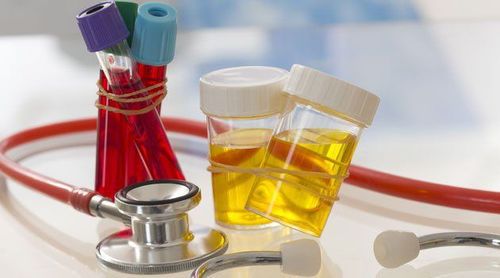
Phân tích nước tiểu cho phép đánh giá chỉ số enzym và nội tiết tố
1.5. Abnormal biochemical components may be found in the urine:
+ Bilirubin, urobilinogen
+ Ketone bodies (acetone, diacetic acid, 3-oxybutiric acid)
+ Glucose, fructose, galactose, lactose, pentose
+ Protein, protein Bence-Jones
+ Hemosiderin
+ Red blood cells, hemoglobin, myoglobin
+ Melanin
+ Porphyrin
If you need consultation and examination at Vinmec Hospitals of the national health system, please book an appointment on the website for service.
Please dial HOTLINE for more information or register for an appointment HERE. Download MyVinmec app to make appointments faster and to manage your bookings easily.




